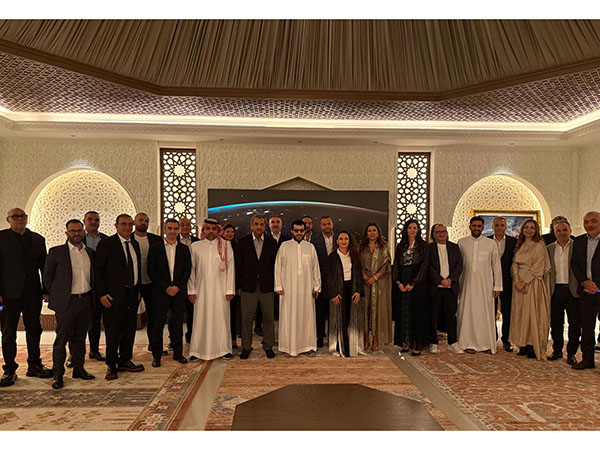News - News In Brief
New study maps MENA’s tech sector
June 20, 2023

Doha-based strategic communications agency BLJ Worldwide has launched one of the first umbrella studies into the current state of the technology industry across Arab countries in the Middle East and North Africa (MENA) region.
The ‘MENA Tech 2023: Mapping the Technology Landscape’ report is one of the first in the region to bring together various topics within the space, from fintech to gaming, to take an overarching, ‘state-of-the-region’ look at the MENA technology sector.
Justin Kerr-Stevens, CEO, BLJ Worldwide commented: “MENA’s tech industry has come a long way in the last decade driven by significant investment and global moments like the FIFA World Cup Qatar 2022 and Expo 2020. With visits from the founder of Chat GPT, and sovereign wealth fund investments in Twitter and other tech unicorns, our report paints a picture of a diverse and rapidly evolving region. Once a relatively disparate collection of markets that largely followed the lead of economies such as the US and China, today MENA is a region that is recognised not only for its potential investment in tech but as a market that has its own distinct technological identity.”
The 50 plus page report, which examines 18 countries[1] was commissioned to explore the strength of exciting recent technological advancements in many MENA markets and has been compiled through a combination of desk research, sentiment analysis and expert opinion.
MENA’s Technological Present and Future
The incredible rise of Artificial Intelligence (AI), the prominence of women in Arabic esports and the region’s vast investment into future technologies are just some of the most interesting current themes and trends identified in the report.
By enlisting the views of prominent MENA-based personalities, including academics and CEOs of major home-grown companies, the study also makes pertinent future gazing predictions for tech in the region. These include:
● Precision healthcare will change the face of the region’s medical system, increasing net quality of life and decreasing morbidities related to pernicious disease (Dr. Danny Ramadan, Investment Director, Qatar Science & Technology Park)
● AI will revolutionise the region’s education sector, making education more accessible, engaging, and relevant to the modern world (Abdullatif AlShamsi, Professor of Engineering).
● MENA will adopt a unified currency, similar to the Universal Payment Interface seen in other countries (Michael Javier, CEO, CWallet)
Mapping MENA’s Technology Sector
The report identifies the UAE, Kingdom of Saudi Arabia (KSA), Egypt, Bahrain, and Qatar as MENA’s overall top technology hotspots. They have been chosen for various reasons, including their high level of investment into future technologies, thriving start-up ecosystems, world-leading internet connectivity and more.
Other verticals in the report reveal that:
● 44% of the MENA gaming market identifies as female.
● The UAE is the region’s tech startup capital, with local companies raising $1.85bn in 2022. This is followed by KSA ($907 million) and Egypt ($736 million).
● KSA, the UAE, Egypt, Qatar, and Bahrain are among the region’s top locations for research and development. Each of these countries substantially invest in developing their technology sector and possess world-leading research facilities.
● The UAE, Egypt, KSA, Oman and Morocco are home to the highest proportion of the region’s most influential women in tech.
The report also outlines the region’s most prominent technological trailblazers across a variety of fields, including Kuwaiti gamer AboFlah, who has 28 million YouTube subscribers, and UAE-based Ambareen Musa, who founded Souqamal, the first online comparison site in the Arab world.
It also reveals ‘ones to watch’, including Hassan Al Ibrahim, Founder of Qatari eco-farm Heenat Salma, and Sara Sabry, the first Egyptian Astronaut and first Arab and African woman to go to space.
Kate Midttun, Chairperson, Middle East Public Relations Association, commented: “The MENA tech industry is a rapidly evolving and exciting space to work in, offering immense potential for innovation and growth, fuelled by a young and tech-savvy population, supportive government policies, and a thriving startup ecosystem.”
1- The ‘MENA Tech 2023: Mapping the Technology Landscape’ report examines eighteen Arabic countries in the MENA region, including the UAE, KSA, Qatar, Bahrain, Kuwait, Oman, Jordan, Palestine, Lebanon, Syria, Yemen, Iraq, Iran, Egypt, Morocco, Libya, Algeria, Tunisia.













